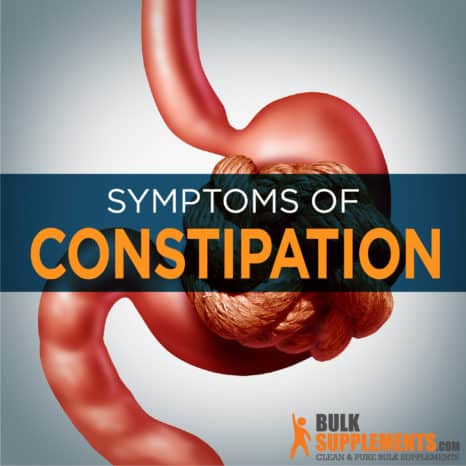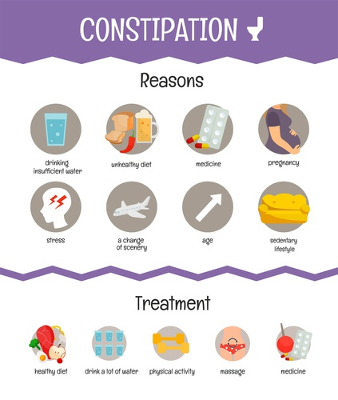
Although the exact causes of constipation are complex, there are certain steps you can take to alleviate symptoms and prevent recurring episodes. The first step is to consult with your healthcare provider, who will ask about your past health and any bowel problems you’ve experienced. After reviewing your history and current symptoms, the healthcare provider will perform a thorough physical exam. The doctor will perform a digital rectal examination to assess stool consistency and thickness. A blood test will also be done to determine the cause of constipation.
The second step is to change your diet. You should try to increase your intake of plant-based foods, including wholegrain cereals. Increasing your fibre intake will reduce the likelihood of constipation, as they help with regular bowel movements. Avoiding dairy products and reducing your physical activity is also important for proper bowel function. Taking fluids will help you pass your faeces, so it’s important to drink plenty of water.
Dietary changes may also be necessary. Increasing your intake of soluble and insoluble fibre can help with constipation. Soluble fiber dissolves in water, forming a soft gel when passing through the digestive tract. Insoluble fiber keeps most of its structure, but still joins with the stool to increase weight and soften it. Some conditions, such as eating disorders and prolonged periods of erratic eating habits, can cause chronic constipation.
There are several other reasons for constipation, including neurological and digestive disorders. Regardless of the cause, the result is the same: the colon absorbs too much water from your waste. This makes it hard for the stools to pass through the colon. Consequently, constipation becomes a chronic condition that can cause pain and difficulty in daily activities. If you have an underlying medical condition, your doctor will prescribe a suitable medication.
The next step is to consult your doctor and record your bowel movements. Stress and anxiety can cause constipation because they affect the digestive system. The use of iron supplements and antidepressants may also cause constipation. Despite the fact that constipation is a common symptom of other conditions, it is important to seek medical advice when it becomes chronic. This is because the condition can be a symptom of a serious medical condition.

Other causes of constipation include an overactive thyroid gland, a high-fiber diet, and lack of physical activity. The presence of thyroid hormones in the body is one of the most common causes of constipation. Apart from a low-fat diet, other factors that cause constipation include a sedentary lifestyle and lack of regular exercise. In addition, a sedentary lifestyle can interfere with regular bowel movements.
Poor diet and lack of exercise are two other causes of constipation. A diet that lacks fiber and water is unhealthy and can lead to constipation. A diet containing more fiber will ensure regular bowel movements. It is important to avoid processed foods as they are high in fat and lack fiber. A diet rich in fiber and water will keep your bowels moving freely. Additionally, a high-fiber diet will help you feel full and satisfied.
Your doctor may suggest you keep a bowel diary to help determine the cause of your constipation. In addition to examining your bowels, your doctor will ask you about your bowel habits and your overall health. You will also be asked about any medications you are taking. Gradually increasing your fiber intake can help improve your quality of life. If you are taking medications that cause constipation, it is best to consult your doctor and visit a health website Alfaman Mexico.
Constipation is often caused by blockage of the stool, nervous disorders, or damage to the intestinal lining. Other potential causes of constipation include problems with the intestinal muscles and nerves. Your doctor will determine whether you have a gastrointestinal disease based on the signs and symptoms you have. Depending on your age and medical history, your doctor may recommend certain tests to determine the cause of your constipation.
A diet containing 20 to 35 grams of fiber per day is important for healthy bowel function. A high-fiber diet will help keep your stools soft and bulky. It is also helpful to avoid high fiber foods such as white bread, white rice and pasta. A diet rich in fiber can help prevent constipation. For those who suffer from chronic constipation, your doctor may prescribe laxatives to help relieve the problem.